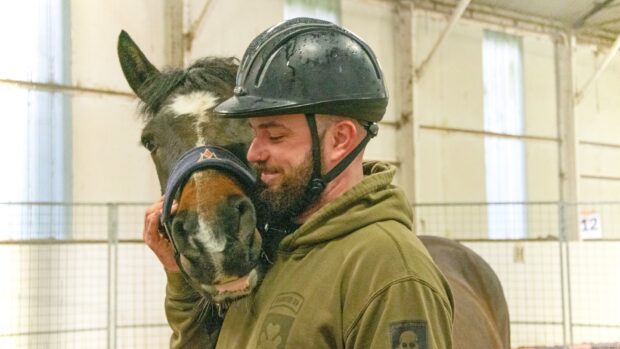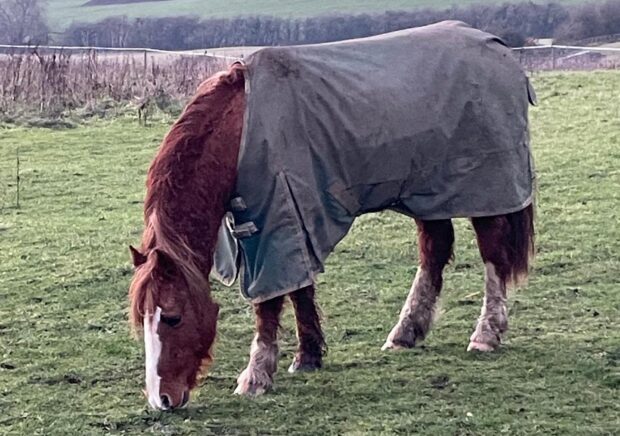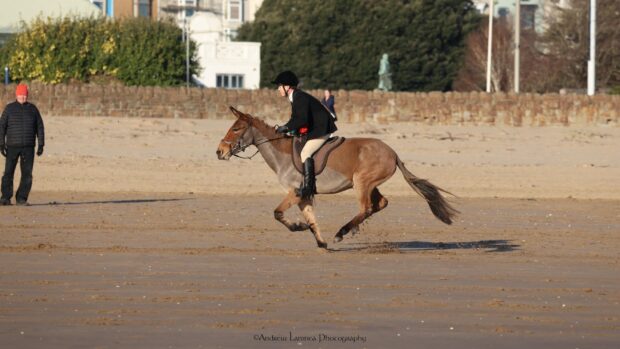Equestrian sport has the opportunity to lead the way in menopause research – as new findings highlight the struggles women are facing.
British Equestrian level four coach, University of Gloucestershire student, and saddle fitter Steph Bradley’s pioneering work aimed to understand how the perimenopause and menopause impacts riders. The research, which will be submitted for publication in a scientific journal, won the best postgraduate research prize at the Alltech-Hartpury Equine student conference on 8 May.
More than 1,600 riders took part in the work, which involved completing a questionnaire. The results found that 68% of participants felt that their motivation for riding was negatively impacted by their symptoms, and one in three said they had stopped riding temporarily or permanently.
Some 700 respondents said they had less confidence, and 60% said their coaching sessions had been negatively impacted. Just 50% of respondents felt they could speak openly to their female coach about their symptoms impacting their riding, and only 10% felt they could talk to their male coach.
Mrs Bradley told H&H that the responses had been “staggering”, and in many cases women were not associating some of their symptoms with the menopause. Mrs Bradley developed severe hip pain aged 52 and was told she would need a hip replacement, but after seeking further advice and starting hormone replacement therapy, this pain significantly reduced and she continues to compete.
“Generally, people consider hot flushes the menopause ‘thing’, but in riders it was musculoskeletal pain. Anxiety and confidence loss was also a big part, whether it be temporary or permanent.
“So many people said they didn’t want to jump anymore, or those who usually hack now just want to spend time with their horse and not ride. The menopause could be the reason why,” she said, adding that she urges riders to be aware of symptoms, and to seek advice from their GP or a specialist menopause clinic.
“More than 600 people also shared their stories and some of them were heartbreaking. When you’ve got something that someone loves more than anything in their life or they work hard for, and it suddenly becomes something they dread or fear and feel they can’t do it, that’s so upsetting. Some people go through a lot, and they’re on their own. Women need an outlet.”
Mrs Bradley said she thought more riders would have felt they could talk to their female coach.
“As a coach, it makes me think that I’m going to have someone in front of me that could be experiencing these symptoms. Coaches need to be aware and be able to steer people towards support.
“People often think, ‘It’s an old age thing’, which stops them being active. We want people to stay active for longer, and by having a better understanding from the medical profession, coaches and sporting organisations, and just from individuals themselves, this will really help keep women active.”
Lorna Cameron, a senior lecturer at Hartpury University whose work has included barriers to riding, told H&H Mrs Bradley’s research shows the “magnitude of the issues” for riders – and praised Mrs Bradley’s “brilliant” work.
“Until very recently menopause was the last step in women’s health that was still not very openly discussed. Women’s experiences can be so varied, and there’s so many different symptoms where people write them off and think, ‘That’s just me’,” she said.
“In the equestrian industry we’ve done a lot of research on the horse, and quite rightly so, but I think we’re quite far behind other sports’ science in humans. But there are less sports where women can keep going at an elite or amateur level at the age that we can in equestrianism, so we’re a nice model for that investigation of women at that stage of their life and equestrianism can be leading this area.”
Ms Cameron discussed the importance of making information for riders available.
“Charities have done a great job of making menopause something everybody can talk about, but we know equestrians like to talk to horse people, so being able to have that resource specifically for them – and their coaches – would make it even more accessible,” she said.
For more menopause advice visit: www.menopausesupport.co.uk.
● Has your riding been negatively impacted by menopause symptoms, and do you feel you can talk to your coach about it? Let us know your thoughts at hhletters@futurenet.com, including your name, nearest town and country, for the chance for your letter to appear in a forthcoming issue of the magazine
You might also be interested in:

Menopause and riding: where to find advice, support and more information

Menopause, riding and why education is important for all: ‘It’s absolutely vital we talk about it’

‘We must keep doing the things we love’: Badminton grassroots rider speaks up about menopause

Subscribe to Horse & Hound magazine today – and enjoy unlimited website access all year round
Horse & Hound magazine, out every Thursday, is packed with all the latest news and reports, as well as interviews, specials, nostalgia, vet and training advice. Find how you can enjoy the magazine delivered to your door every week, plus options to upgrade your subscription to access our online service that brings you breaking news and reports as well as other benefits.




